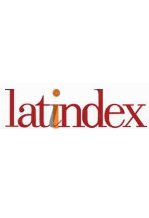The green accord for the Brazilian Amazon
Keywords:
Climate Change. Green accord. Brazilian Amazon. Modern Monetary Theory. Governance of economic transitionAbstract
The fast climate change that is felt on the planet, evidenced by the unsustainable scenario of waste generated by the current sources and loss of biodiversity, shows the necessity of changes in the energetic and material sources. Within the scope of these discussions, the Amazon is always seen as a crucial point. In this scenario, this paper proposes a green accord for the Brazilian Amazon. Therefore, it is analyzed the preservation of the Amazon, the contextualization of the necessity of changes on the economy and the Modern Monetary Theory as supportive of this governance of economic transition, placed per suggestions and proposals in that green accord.
Downloads
References
AGLIETTA, Michel et al (2016). Climate and Finance Systemic Risks, More Than an A-nalogy?: The Climate Fragility Hypothesis. CEPII, Centre d'etudes prospectives et d'infor-mations internationales, 3-30. Disponível em: < https://www.researchgate.net/profile/Etienne_Espagne/publication/305307236_Climate_and_Finance_Systemic_Risks_more_than_an_analogy_The_climate_fragility_hypothesis/links/57876ef808aea8b0f0c2bcd3.pdf >. Acesso em: 01 set. 2019.
ALENCAR, Douglas, et al (2015). O circuito finance-investimento-poupança-funding na economia aberta e com o governo. Cedeplar, Universidade Federal de Minas Gerais, 1-25. Disponível em: < https://www.researchgate.net/profile/Douglas_Alencar2/publication/320069278_O_CIRCUITO_FINANCE-INVESTIMENTO-POUPANCA FUNDING_NA_ECONOMIA_ABERTA_E_COM_GOVERNO/links/59cc31c0a6fdcc451d5cee7c/O-CIRCUITO-FINANCE-INVESTIMENTO-POUPANCA-FUNDING-NA-ECONOMIA-ABERTA-E-COM-GOVERNO.pdf>. Acesso em: 01 set. 2019.
BATTEN, Sandra; SOWERBUTTS, Rhiannon; TANAKA, Misa (2016). Let's talk about the weather: the impact of climate change on central Banks, 2-37. Disponível em: <https://papers.ssrn.com/sol3/papers.cfm?abstract_id=2783753>. Acesso em: 01 set. 2019.
BECKER, B. K. (2007). Síntese da produção científica em ciências humanas na Amazônia: 1990-2002. Dimensões humanas da biosfera-atmosfera na Amazônia. São Paulo: EDUSP, 13-38.
BONIZZI, Bruno; KALTENBRUNNER, Annina; MICHELL, Jo (2019). Monetary sovereignty is a spectrum: modern monetary theory and developing countries. real-world economics review, 89: 46-61. Disponível em: < http://www.taxresearch.org.uk/Documents/RWER89.pdf#page=46>. Acesso em: 01 set. 2019.
CAMPELLO, Marcelo de Moura Carneiro (2013). A Questão Ambiental e a Nova Geopolítica das Nações: Impactos e Pressões sobre a Amazônia Brasileira. Espaço Aberto, 3(2): 131-148. Disponível em: < https://dialnet.unirioja.es/servlet/articulo?codigo=5301623>. Acesso em: 01 set. 2019.
CASTRO, Edna; FIGUEIREDO, Silvio; RIVERO, Sérgio; ALMEIDA, Oriana (2018). Pensamento crítico sobre a Amazônia e o debate sobre desenvolvimento. Papers do NAEA. Belém, 379: 4-19 . Disponível em: < http://www.naea.ufpa.br/naea/novosite/paper/457 >Acesso em: 01 set. 2019.
CAVALCANTI, Clóvis (2004). Economia e ecologia: problemas da governança ambiental no Brasil. Revibec: revista iberoamericana de economía ecológica, v. 1: 1-10. Disponível em: < https://www.raco.cat/index.php/Revibec/article/view/38276>. Acesso em: 01 set. 2019.
CORRÊA, Alessandra (2014). Brasil é exemplo de sucesso na redução do desmatamento, diz relatório. BBC Brasil.Nova York, 5 de jun. de 2014. Disponível em: < https://www.bbc.com/portuguese/noticias/2014/06/140604_desmatamento_relatorio_ac_hb>. Acesso em: 01 set. 2019.
DAFERMOS, Yannis; NIKOLAIDI, Maria; GALANIS, Giorgos (2018). Climate change, financial stability and monetary policy. Ecological Economics, v. 152: 219-234. Disponível em: < https://www.sciencedirect.com/science/article/pii/S0921800917315161>. Acesso em: 01 set. 2019.
DE ASSIS COSTA, Francisco (2009). Trajetórias tecnológicas como objeto de política de conhecimento para a Amazônia: uma metodologia de delineamento. Revista Brasileira de Inovação, 8(1): 35-86. Disponível em: < https://periodicos.sbu.unicamp.br/ojs/index.php/rbi/article/view/8648975>. Acesso em: 01 set. 2019.
EGLER, P (2006). Organização e formas cooperativas da ciência e tecnologia na Amazônia. Brasília: CGEE.
FAJNZYLBER, F (1988). Competitividad internacional en la América Latina. Revista de la CEPAL, n. 36.
FERREIRA, Leandro Valle; VENTICINQUE, Eduardo; ALMEIDA, Samuel (2005). O des-matamento na Amazônia e a importância das áreas protegidas. Estudos avançados, 19(53): 157-166. Disponível em: < http://www.scielo.br/scielo.php?pid=S0103-40142005000100010&script=sci_arttext&tlng=pt>. Acesso em: 01 set. 2019.
FONTANA, Giuseppe; SAWYER, Malcolm (2016). Towards post-Keynesian ecological macroeconomics. Ecological Economics, v. 121: 186-195. Disponível em: <https://www.sciencedirect.com/science/article/pii/S0921800915001020 >. Acesso em: 01 set. 2019.
FORTUNA, Eduardo (1999). Mercado Financeiro: produtos e serviços. – 13ª ed. – Rio de Janeiro: Qualitymark Ed. 544p.
FRANCISCO, Wagner de Cerqueria e (2019). "Redução do desmatamento na Amazônia "; Brasil Escola. Disponível em: https://brasilescola.uol.com.br/brasil/reducao-desmatamento-na-amazonia.htm. Acesso em 01 set. 2019.
IGLIORI, Danilo Camargo (2006). Economia espacial do desenvolvimento e da conservação ambiental: uma análise sobre o uso da terra na Amazônia. Ciência e Cultura, 58(1): 29-33. Disponível em: < http://cienciaecultura.bvs.br/scielo.php?pid=S0009-67252006000100014&script=sci_arttext&tlng=es>. Acesso em: 01 set. 2019.
JÄRVENSIVU, P. et al (2018). Global Sustainable Development Report 2019 Drafted by the Group of Independent Scientists. Invited Background Document on Economic Transformation, to Chapter: Transformation: The Economy, 1-8. Disponível em: < https://bios.fi/bios-governance_of_economic_transition.pdf >. Acesso em: 01 set. 2019.
KAIMOWITZ, David et al (2004). A conexão hambúrguer alimenta a destruição da Amazônia: desmatamento e pecuária na Amazônia. Jakarta: CIFOR, 1-11. Disponível em: < http://www.cifor.org/publications/pdf_files/media/amazon-portugese.pdf>. Acesso em: 01 set. 2019.
LAVOIE, M. (2013). The monetary and fiscal nexus of neo-chartalism: a friendly critique. Journal of Economic Issues, 47(1): 1-32. Disponível em: <https://www.tandfonline.com/doi/abs/10.2753/JEI0021-3624470101?casa_token=jA450OE0rn0AAAAA%3Aru4u-jtyTQ6qpjSBIEmkizhdsK8oC5mmr2qe9OQH8U5Znn3uJo07xiCORFmAQrx_Qq1sRI9vwxd5NoI& >. Acesso em: 01 set. 2019.
LOUREIRO, Violeta Refkalefsky (2009). A Amazônia no século XXI: novas formas de desenvolvimiento. Empório do Livro.
MITCHELL, W. (2015). Eurozone Dystopia: Groupthink and Denial on a Grand Scale. Ed-ward Elgar Publishing.
NAHUR, André C.; GUIDO, Fabio L.; SANTOS, Jorge André G (2015). As mudanças climáticas: riscos e oportunidades. Programa Água Brasil, 3-125. Disponível em: <https://www.bb.com.br/docs/pub/siteEsp/uds/dwn/mudclimatica.pdf >. Acesso em: 01 set. 2019.
NERSISYAN, Yeva et al (2019). How to Pay for the Green New Deal, 1-55. Disponível em: < http://www.levyinstitute.org/pubs/wp_931.pdf>. Acesso em: 01 set. 2019.
NEPSTAD, D. C.; STICKLER, C.; ALMEIDA, O. T (2006). Globalization on the Amazon soy and beef industries: opportunities for conservation. Conservation Biology, v. 20: 1595-1603. Disponível em: < https://onlinelibrary.wiley.com/doi/abs/10.1111/j.1523-1739.2006.00510.x >. Acesso em: 01 set. 2019.
OCASIO-CORTEZ, Alexandria; MARKEY, Ed. (2019). The Green New Deal, 1-6, 07/02/2019. Disponível em: < https://www.heartland.org/_template-assets/documents/Green-New-Deal-FAQ-Fact-Sheet-Feb-7-2019.pdf>. Acesso em: 01 set. 2019.
REYDON, Bastiaan Philip (2011). O desmatamento da floresta amazônica: causas e soluções. AMBIENTAL, 143-155. Disponível em: < http://www.zeeli.pro.br/wp-content/uploads/2012/06/Revista-Politica-Ambiental-jun-Econ-Verde.pdf#page=143 >. Acesso em: 01 set. 2019.
SÁ, T. D. A. (2006). Subsídios a uma agenda de pesquisa agropecuária e florestal para a Amazônia. paper apresentado no Fórum Regional para Fortalecimento da Pesquisa Agropecuária na Região Amazônica, Belém, 8(11).
SUZUKI, Natália (2012). Preço de commodities impõe ritmo de desmatamento da Amazônia. Repórter Brasil. 20 de Dezembro de 2012. Disponível em: < https://reporterbrasil.org.br/2006/12/preco-de-commodities-impoe-ritmo-de-desmatamento-da-amazonia/>. Acesso em: 01 set. 2019.
TYMOIGNE, Eric (2014). Modern Money Theory, and Interrelations Between the Treasury and Central Bank: The Case of the United States. Journal of Economic Issues, 48(3): 641-662. Disponível em: < http://www.levyinstitute.org/pubs/wp_788.pdf>. Acesso em: Acesso em: 01 set. 2019.
UNRUH, Gregory C. (2000). Understanding carbon lock-in. Energy policy, 28(12): 817-830. Disponível em: < https://www.sciencedirect.com/science/article/abs/pii/S0301421500000707>. Acesso em: Acesso em: 01 set. 2019.
UNRUH, Gregory C. (2002). Escaping carbon lock-in. Energy policy, 30(4): 317-325. Disponível em: < https://www.sciencedirect.com/science/article/abs/pii/S0301421501000982>. Acesso em: Acesso em: 01 set. 2019.
VIEIRA, I. (2006). Aproveitamento da biodiversidade com ênfase para oportunidades de uso a partir do conhecimento autóctone. paper apresentado no Fórum Regional para Fortalecimento da Pesquisa Agropecuária na Região Amazônica, Belém, 8(11).
WRAY, L.R. (2014). From the State Theory of Money to Modern Money Theory: an alternative to economic Orthodoxy. Working Paper n. 792, Levy Economics Isntitute, March, 1-34. Disponível em: <https://papers.ssrn.com/sol3/papers.cfm?abstract_id=2407711>. Acesso em: 01 set. 2019.
WRAY, L. R. (2015). Modern money theory: A primer on macroeconomics for sovereign monetary systems.Springer.
Downloads
Published
How to Cite
Issue
Section
License
The copyright of papers published in the Revista de Economia Mackenzie belongs to the authors, who grant to the Mackenzie Presbyterian University the exclusive rights to publish the content. Total or partial reproduction is prohibited without due authorization of the Editorial Committee, except when it is previously authorized.










